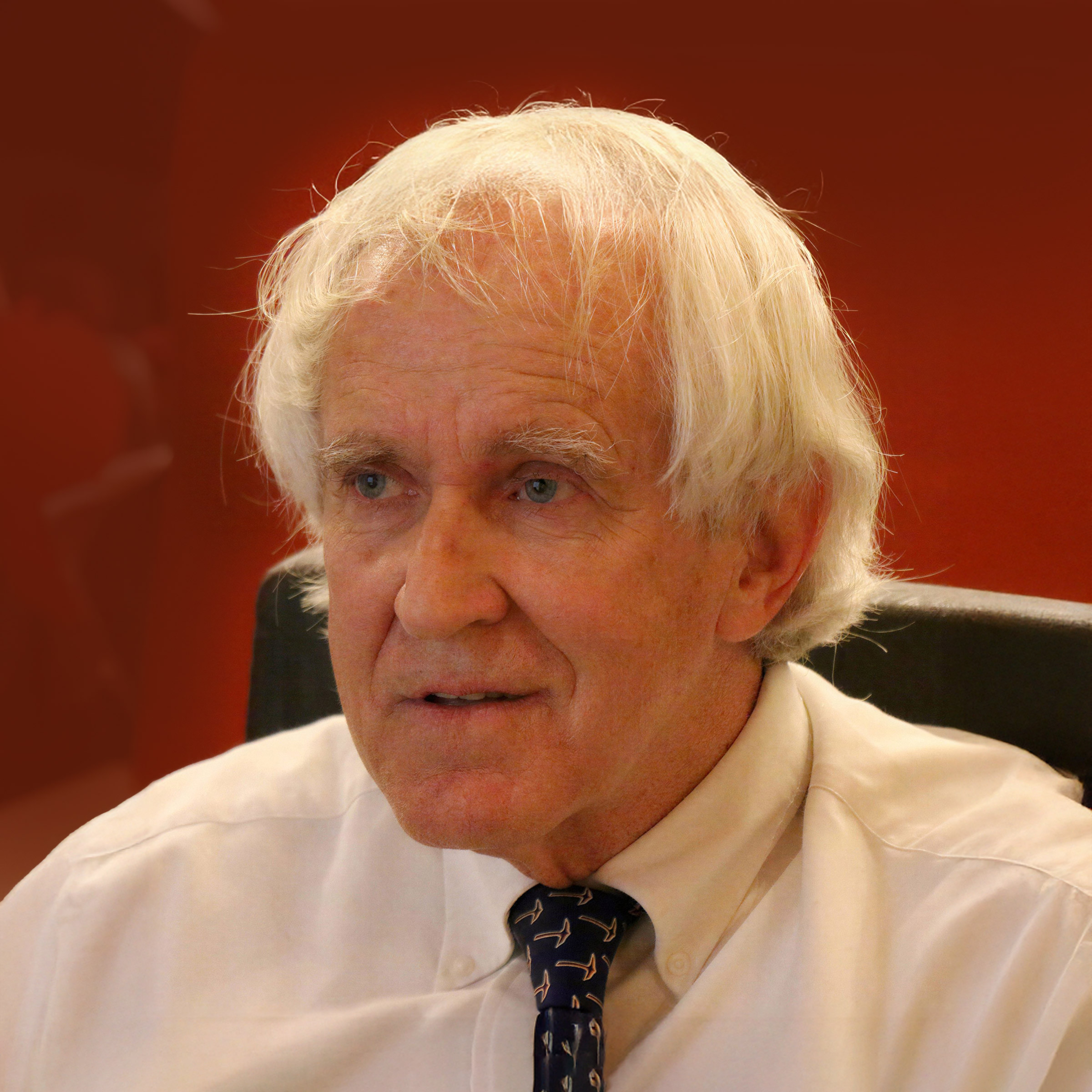Editor’s note: We are delighted to present this excerpt from Chapter 2 of Neil Thomas’s new book, False Messiah: Darwinism as the God That Failed (Discovery Institute Press).
No few of the problems which readers have registered on reading Darwin’s Origin of Species have been linguistic, arising from a curious lack of conceptual and definitional precision in Darwin’s formulations. His somewhat confusing terminological choices are a feature of his work that even experts have had trouble with. In the English language prior to Darwin, “natural selection” was a term used by those who reared animals to denote nature’s serendipity, those unpredictable changes to animal physiology over the generations arising from factors operating outside the sphere of the breeders’ understanding and control. The term stood in semantic contradistinction to breeders’ efforts to mate carefully chosen animals of each sex in order to encourage the emergence of favored features in the resulting progeny, what is often referred to today as “artificial selection.”
A Significant Degree of Semantic Creep
Hence its original meaning in the common understanding of standard English was semantically anchored in notions of the random, unforeseeable and unplanned, something beyond the ken of breeders. However, when Darwin commandeered the term, a significant degree of semantic creep took place. Alfred Russel Wallace and other colleagues pointed out to him that there was little comparison between what animal breeders did by the use of human ingenuity and how mindless nature acted. Darwin conceded various differences between artificial and natural breeding, with some redounding to the creative powers of artificial selection, such as artificial selection benefiting from the foresight and goal-directedness of the human breeders. But he also insisted on advantages of natural selection over artificial selection. These included its greater timescales, its working on much larger populations, and the fact that natural selection worked toward the fitness benefit of the organisms themselves, rather than for those of the human breeders. In any case, he was unwilling to let go of his analogy to domestic breeders. In this anthropomorphic conception, Nature, like the human livestock breeder, exercised her own forms of selection. Darwin persisted in contending that Nature, with limitless millennia at her disposal, could do a more comprehensive job of bringing about major physiological changes (and eventually new species) than could intelligent human breeders. In this anthropomorphic conception, Nature, like the human livestock breeder, exercised her own forms of selection. Darwin persisted in contending that Nature, with limitless millennia at her disposal, could do a more comprehensive job of bringing about major physiological changes (and eventually new species) than could intelligent human breeders. This is how he phrased that idea in the Origin:
It may metaphorically be said that natural selection is daily and hourly scrutinising, throughout the world, every variation, even the slightest; rejecting that which is bad, preserving and adding up all that is good; silently and insensibly working, whenever and wherever opportunity offers, at the improvement of each organic being in relation to its organic and inorganic conditions of life. We see nothing of these slow changes in progress, until the hand of time has marked the long lapse of ages, and then so imperfect is our view into long past geological ages, that we only see that the forms of life are now different from what they formerly were.1
Not to Be Taken Literally
It is noteworthy in the above that the word “metaphorically” should have been used because it acknowledges that the process being described should not be taken literally but rather understood as a poetic image functioning as a conceptual aid to express something that could not otherwise be easily explained. Also noteworthy, the word “metaphorically” is not in the first edition of the Origin (1859), but was subsequently added by Darwin, presumably to protect himself (albeit not entirely successfully) against a charge of animism and the objection that he was supporting an anthropomorphic or even theistic understanding of the evolutionary process. Not without reason was Darwin’s metaphor of natural selection recently decoded as “an anthropomorphic but superhuman agency, ‘daily and hourly scrutinizing’ all variation, and making intelligent and benevolent decisions like a Paleyan Designer.”2 The same point was made more than a century earlier by one of the leading lights of the Oxford Movement of the 1840s, Edward Bouverie Pusey, as the chronicler of English thought, Basil Willey, noted:
This same metaphysical unawareness led him [Darwin] also, almost without noticing it, to replace the absent God with a latent personification of Nature, or even of “Natural Selection” itself. True, he catches himself out from time to time, and warns us that he is only speaking metaphorically when he talks of Natural Selection “observing minutely,” “with unerring tact discovering each improvement for further perfecting,” and so forth. But he returns so habitually to that way of speaking, that we feel Pusey to be right in accusing Darwin of having himself introduced, into the theological vacuum he had created, a power acting according to design.3
No Mere Literary Ornamentation
The use of metaphors should not be dismissed as mere literary ornamentation. In this instance, Darwin’s scientific discourse strays from providing a strictly materialistic account of speciation, with the language opening up — perhaps even encouraging — a non-materialist interpretation.
 Image source: Discovery Institute Press.
Image source: Discovery Institute Press.Pusey, for instance, was not alone in concluding that Darwin was unwittingly introducing the notion of “a power acting according to design.” Samuel Wilberforce too had sensed that Darwin was implicitly ascribing to Nature the same ontological status as his fellow theists customarily ascribed to God. It should perhaps be pointed out straightaway that “Soapy Sam” Wilberforce was not the surpliced buffoon of later parody. He was an Oxford First in Mathematics who also had practical experience of livestock breeding and could rely for specialist information on his personal friendship with Britain’s top paleobiologist, Richard Owen. His review of the Origin, which even Darwin regarded as “uncommonly clever” for its highlighting of weak points in his argumentation, ran to forty pages.4
Darwin’s apparent raising of external nature to crypto-divine status was, concluded Wilberforce, just as much an article of faith as any of the more conventional forms of theistic belief. Wilberforce surely had a point. As Dov Ospovat ascertained in a foundational study some four decades ago, Darwin was often influenced by theological ideas without always recognizing them as theological ideas.5 Ospovat noted significant similarities of outlook between Darwin and other naturalists of his era, including the legendary German explorer Alexander von Humboldt (1769–1859). Darwin took with him aboard the Beagle Humboldt’s account of his own explorations, and from Humboldt he is thought to have derived ideas in the German tradition of Naturphilosophie, which includes the conception that all nature is governed by a “world spirit.”6 Ospovat also found that in his notebooks Darwin made reference to the fact that the creator creates by what Darwin elsewhere terms designed laws.7 These, Ospovat says, represented “a far higher conception of the creator than to suppose he created by separate interpositions of divine power.”8
Why Darwin Was So Confident
The Humboldtian influence on Darwin’s thinking may go some way to explaining why Darwin was so confident that the transmutation of species would reliably result in physiological improvement and development rather than accidental degradation. Yes, the idea of natural selection weeding out the defects had something to do with this, as did the geological column, suggesting as it did at least a very rough upward trajectory from simpler to more complex. But there seems to have been something else at work as well: a belief in something like crypto-providence, a faith not difficult to see as springing from the Christian cultural milieu of his upbringing. He does not seem to have questioned why a process he insisted was blind should somehow be automatically in favor of progress. Indeed, even an appeal to a progressively advancing fossil record can be overstated. After all, the same fossil record that begins with microbes and eventually reaches primates and eventually humans is also marked by what appears to be a series of cataclysmic global extinction events. The fact that natural selection was effectively a theory of progressive development as much as of random or merely opportunistic adaptation appears to have been a matter of unexamined faith for him.
What has felicitously been termed Darwin’s epistemological double vision9 may at first seem curious, and yet it was familiar enough to the mid-Victorian mindset, having been shared by a writer famed for her agnostic views, George Eliot, of whom it has been written that she “abandoned a deeply-felt form of Christianity, but retained in her agnostic years a deep sense of divine providence in the world.”10 The unresolved tension, which Darwin shared with many Victorian coevals, was something which began in his youth and endured to his older years. This can be witnessed if we make a short digression back to 1833 when a young Charles Darwin was making arrangements to board the Beagle for his global voyage of exploration.
Notes
- Darwin, On the Origin of Species, 84.
- Sander Gliboff, H. G. Bronn, Ernst Haeckel and the Origins of German Darwinism: A Study in Translation and Transformation(Cambridge, MA: MIT Press, 2008), 136.
- Basil Willey, Darwin and Butler: Two Versions of Evolution (London: Chatto and Windus, 1960), 30. Willey refers here to the views expressed by Edward Bouverie Pusey in his sermon Un-Science, Not Science, Adverse to Faith (Oxford, UK: Devonport Society of the Holy Trinity, 1878), https://anglicanhistory.org/pusey/unscience.pdf.
- Samuel Wilberforce, “On the Origin of Species,” Quarterly Review (1860): 224–265. On Wilberforce’s achievements see Standish Meacham, Lord Bishop: Life of Samuel Wilberforce 1805–1873 (Cambridge, MA: Harvard University Press, 1974).
- Dov Ospovat, The Development of Darwin’s Theory: Natural History, Natural Theology and Natural Selection 1839–1859 (Cambridge, UK: Cambridge University Press, 1981), especially 207–212. See also Steve Dilley’s recent work on Darwin’s use of theology in the Origin: “Charles Darwin’s Use of Theology in The Origin of Species,” British Journal for the History of Science 44, no. 1 (2012): 29–56.
- See Robert J. Richards, The Romantic Conception of Life: Science and Philosophy in the Age of Goethe (Chicago: University of Chicago Press, 2002), especially 514–553, and Andrea Wulf, The Invention of Nature, The Adventures of Alexander von Humboldt (London: John Murray, 2015), especially 217–234.
- Charles Darwin, “Darwin’s Notebooks on Transmutation of Species: Part I. First Notebook [B] (July 18371838),” ed. Gavin de Beer, Bulletin of the British Museum Historical Series 2, no. 2 (January 1960): 53, https://darwin-online.org.uk/content/frameset?itemID=F1574a&keywords=creates%20creator&viewtype=text&pageseq=31. Darwin and Asa Gray discuss “designed laws.” See for instance Charles Darwin to Asa Gray, May 22, 1860, Darwin Correspondence Project, University of Cambridge, Letter no. 2855, https://www.darwinproject.ac.uk/letter/?docId=letters/DCP-LETT-2814.xml; and Charles Darwin to Asa Gray, July 3, 1869, Darwin Correspondence Project, Letter no. 2855, University of Cambridge, https://www.darwinproject.ac.uk/letter/?docId=letters/DCP-LETT-2855.xml.
- Ospovat, The Development of Darwin’s Theory, 30.
- The phrase is that of Neal C. Gillespie, Charles Darwin and the Problem of Creation (Chicago: University of Chicago Press, 1979).
- A. O. J. Cockshut, The Unbelievers: English Agnostic Thought 1840–1890 (London: Collins, 1964), 10.









































